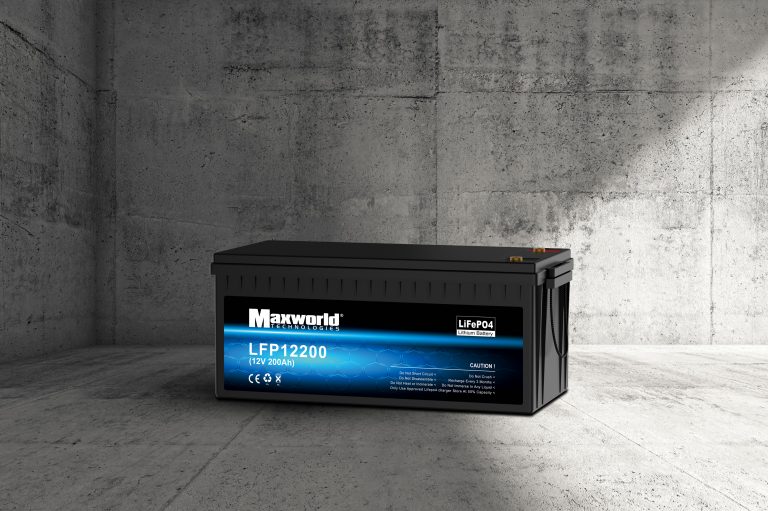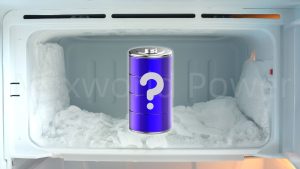Beyond Lithium-Ion: The Unique Chemistry of LiFePO4 Batteries

Lithium iron phosphate (LiFePO4) batteries are a noteworthy substitute for conventional lithium-ion batteries in the field of energy storage. Renowned for their unique chemistry and advantageous properties, LiFePO4 batteries offer a compelling combination of performance, safety, and environmental sustainability. In this comprehensive exploration, we will delve into the distinctive chemistry of LiFePO4 batteries, unraveling the intricacies of their composition, operation, and applications across various industries. By gaining insights into the unique chemistry of LiFePO4 batteries, we can appreciate their potential to revolutionize the energy storage landscape and drive innovation towards a cleaner and more sustainable future.
Understanding the Chemistry of LiFePO4 Batteries:
The cathode material used in LiFePO4 batteries, which are a subset of LiFePO4 batteries, is lithium iron phosphate (LiFePO4). The unique chemistry of LiFePO4 batteries offers several advantages over conventional lithium-ion chemistries, including enhanced safety, thermal stability, and longevity.
- Cathode Material: Lithium Iron Phosphate (LiFePO4):
The iron phosphate crystal structure of a LiFePO4 battery contains intercalated lithium ions that make up the cathode. This unique chemical composition provides stability and minimizes the risk of thermal runaway, making LiFePO4 batteries inherently safer than other lithium-ion chemistries. Additionally, the use of iron phosphate enhances the environmental sustainability of LiFePO4 batteries, as iron is abundant, non-toxic, and cost-effective compared to other transition metals used in lithium-ion batteries.
- Anode Material: Carbon or Graphite:
Lithium ions are intercalated during charging and released during discharging by carbon or graphite materials, which are commonly used as the anode in LiFePO4 batteries. The choice of anode material influences the overall performance and energy density of the battery, with carbon-based anodes offering excellent stability and reversible lithium intercalation properties.
- Electrolyte: Lithium Salt in Organic Solvent:
Lithium salt mixed in an organic solvent makes up the electrolyte of LiFePO4 batteries, which makes it easier for lithium ions to move between the cathode and anode during charge and discharge cycles. The electrolyte composition influences the conductivity, safety, and temperature stability of the battery, with various formulations optimized for specific applications and operating conditions.
Performance Characteristics of LiFePO4 Batteries:
- High Energy Density:
The high energy density of LiFePO4 batteries enables effective energy storage in a small, light package. Because size and weight are important factors, they are therefore a good fit for portable gadgets, electric cars, and renewable energy systems.
- Long Cycle Life:
LiFePO4 batteries have a long cycle life, which is defined as their capacity to withstand a high number of charge-discharge cycles with little deterioration. This is one of its main advantages. This longevity makes them ideal for applications that require reliable and durable energy storage solutions, such as residential energy storage systems and grid-scale energy storage projects.
- Fast Charging Capability:
LiFePO4 batteries have the ability to charge quickly, which allows for faster charging times as compared to other battery chemistries. Their ability to accept high charge currents without compromising performance makes them well-suited for applications that demand quick turnaround times, such as electric vehicles and portable electronics.
- Thermal Stability:
The exceptional thermal stability of LiFePO4 batteries is well known; this reduces the possibility of thermal runaway and guarantees safe operation even in the most adverse circumstances. Because of this built-in safety feature, they are the best option for applications including industrial equipment, aircraft systems, and medical devices where safety is crucial.
- Wide Operating Temperature Range:
LiFePO4 batteries provide resilient performance in a broad spectrum of temperatures, spanning from below-freezing to high ambient temperatures. This versatility ensures reliable operation in diverse environments and climates, making LiFePO4 batteries suitable for outdoor applications, off-grid installations, and automotive systems.
Applications of LiFePO4 Batteries:
LiFePO4 batteries find applications across a wide range of industries, including:
- Electric Vehicles (EVs) and Hybrid Electric Vehicles (HEVs):
LiFePO4 batteries are extensively utilized in hybrid electric vehicles (HEVs) and electric cars (EVs) because of their extended cycle life, high energy density, and safety features. They provide the energy and power required for propulsion while ensuring reliable and efficient operation on the road.
- Renewable Energy Storage Systems:
LiFePO4 batteries are employed in renewable energy storage systems, such as solar photovoltaic (PV) and wind turbine installations, to store excess energy for use during periods of high demand or when renewable energy sources are unavailable. They help stabilize the grid, improve energy reliability, and promote the integration of renewable energy into the power infrastructure.
- Portable Electronics:
LiFePO4 batteries are lightweight, small, and have quick charging capabilities, which makes them popular choices for usage in portable gadgets like power banks, laptops, tablets, and smartphones. They provide reliable and long-lasting power for consumer electronics, ensuring uninterrupted usage and convenience for users.
- Backup Power Systems:
LiFePO4 batteries serve as backup power sources for critical applications, such as telecommunications infrastructure, data centers, and emergency lighting systems. They are ideally adapted to supply dependable backup power in the case of a grid outage or mains power failure due to their high energy density, quick charging speed, and extended cycle life.
Conclusion:
Compared to conventional lithium-ion batteries, LiFePO4 batteries have a number of benefits due to their distinct chemistry, which is defined by the use of lithium iron phosphate as the cathode material. These advantages include increased safety, thermal stability, and endurance. LiFePO4 batteries, with their high energy density, extended cycle life, and exceptional performance under various operating circumstances, are propelling innovation in the fields of electric vehicles, renewable energy storage, portable devices, and backup power systems. As research and development efforts continue to advance LiFePO4 battery technology, we can expect further improvements in performance, safety, and cost-effectiveness, paving the way for a more sustainable and energy-efficient future.






